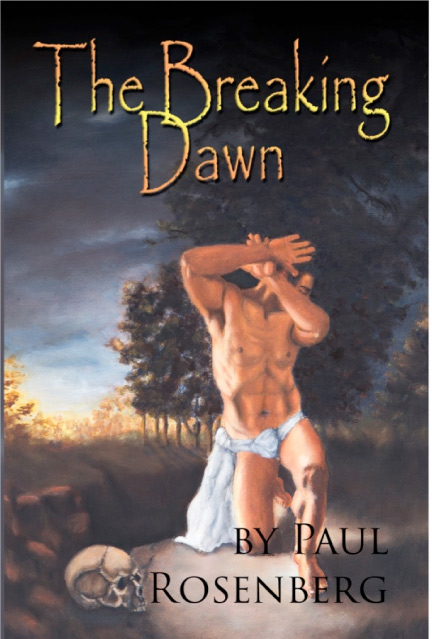How the Bible Became an Idol

Again I am raising a difficult subject, but again, it’s something that needs to be said. And my title is true. The Bible – the holy book of more or less all Christians – has become an idol. And yes, I do mean idol as in “false god.”
A book, no matter how good, remains a book and should be treated as a book. A deity is something far different.
Not every Christian uses the Bible as an idol of course, but many millions do – probably a majority in North America – including nearly all of the TV preachers.
And if you’re about to start screaming “heretic,” please remember something the book says:
Does our law judge any man before hearing what he has to say?
What Is an Idol?
An idol is something you hold above reality.
A true God – a creator of the universe, for example – should be held above reality, since he created reality. If, however, we hold something else above reality, we make it an idol. A created thing should be considered a part of reality, not held above it.
So, when I say the Bible has become an idol, I mean people hold it above reality, putting it into the position of a god.
Christianity Was Not a Book-Based Religion
Christianity very clearly did not start as book-based. When Jesus “preached the good news,” he quoted just a small number of scriptures and usually as a necessity, answering people who questioned him. And several of those were of the “you’ve heard it said… but I say” variety. He read a few lines from Isaiah in his hometown synagogue once, but we see very little more than that.
Even the very literate Paul uses Greek poets in his sermons almost as much as Old Testament passages. (He uses some scriptures in his writings.)
Furthermore, there was no such thing as a New Testament for many generations of Christians. And when we do see them quoting the words of Jesus or the apostles, they are often different from the versions we have today. The fact is that such writings weren’t taken very seriously.
Ernest Renan, one of the finest scholars on Jesus, wrote this:
Little importance was attached to these writings, and the preservers, such as Papias, greatly preferred oral tradition… Hence the little authority which the Gospel texts enjoyed during one hundred and fifty years. There was no scruple in inserting additions, in variously combining them, and in completing some by others.
Whether we like it or not, that’s what happened. The book existed only as separate parts and wasn’t turned into a whole for centuries. It simply wasn’t important.
In fact, the first outside record we have of Christian meetings, a letter of Pliny the Younger from roughly 110 AD, makes no mention whatsoever of scripture readings and expositions, much less altar calls or plate-passing. Their services were very simple and in two parts: early morning singing and oaths, then later in the day, a communal meal… and that’s all.
The first mention I know of reading any sort of New Testament scripture in a meeting comes from Justin Martyr at about 155 AD, a solid four generations after Jesus. And not only does it refer to a small reading, but it doesn’t call the writings scriptures or even holy words; it merely calls them “memoirs.”
The typical excuse regarding this – that God gave a “dispensation of miracles at the beginning, then a dispensation of his Word for us” – is simply a fantasy. There is no real support for such an idea. That doctrine was conjured, being necessary to support current beliefs. People who teach this are openly placing their doctrines above reality.
The Bible’s Flaws
This is the point where authors begin listing the Bible’s flaws and slashing away at them. I, however, don’t want to slash at anything; I find the book to be immensely helpful.
More importantly, anyone who reads the Bible seriously has already seen the flaws.
The problem is not seeing the flaws; it’s facing them.
Those of us who’ve read the book know the laws in the Old Testament that no one follows anymore. We know how the apostles disagreed. But – and this is where idolatry comes in – millions of us pretend that we saw nothing and move on. Or if we’re trying to be very religious, we come up with creative interpretations to resolve the flaws.
And let me be clear on this: Trying to prove everything by the Bible is a deviation from actual growth. If you’ve done this for any length of time, you’ve hindered yourself.
Doing, Or Not Doing
Readers of the book really should know these things. The core of the New Testament – the recorded words of Jesus – require people to do the things he taught. The “Bible as word of God” people, on the other hand, spend endless hours arguing about who Jesus was, comparing scriptures, finding hidden meanings, proving their interpretations right, and proving the interpretations of others wrong. And so they bypass doing.
Because of space I’ll skip past quoting Jesus directly, but any Christian should be familiar with the end of Matthew 7. I recommend rereading it.
The Sad Part
The central requirement for any follower of Jesus is to love. Everything else comes second. Jesus not only taught this again and again; he exhibited it in his life. Christians, however, consistently push it aside in favor of other things. (I could tell you stories, but you probably have your own.)
The reason for pushing it aside of course is that loving is demanding. It forces you to confront all sorts of hidden hatreds, pettiness, envies, and vanities. Once you start to major on loving, you find such things popping up at you. It’s far easier to debate doctrine.
The really sad part of this is that the Bible idolaters – or at least a great number of them – do have experience with the divine impulse, of contact or at least innate yearning for a transcendent ultimate. But they never develop these things, because they’re busy idolizing a mere book, following the traditions and commandments of men.
And they really should have known, because the book says that the letter killeth.
Last Words
A hundred pages would be required to cover this subject sufficiently, but at least this much needed to be said, and rather sooner than later. It could be a very long time before I find the time and energy to produce a book on the subject. Perhaps someone else will take up the job.
* * * * *
A book that generates comments like these, from actual readers, might be worth your time:
- I just finished reading The Breaking Dawn and found it to be one of the most thought-provoking, amazing books I have ever read… It will be hard to read another book now that I’ve read this book… I want everyone to read it.
- Such a tour de force, so many ideas. And I am amazed at the courage to write such a book, that challenges so many people’s conceptions.
- There were so many points where it was hard to read, I was so choked up.
- Holy moly! I was familiar with most of the themes presented in A Lodging of Wayfaring Men, but I am still trying to wrap my head around the concepts you presented at the end of this one.
Get it at Amazon ($18.95) or on Kindle: ($5.99)
* * * * *
Paul Rosenberg
[Editor’s Note: Paul Rosenberg is the outside-the-Matrix author of FreemansPerspective.com, a site dedicated to economic freedom, personal independence and privacy. He is also the author of The Great Calendar,


Sometime in 1991, I became aware of an axiom that goes something like this: “Any strength, practiced to extreme, becomes a weakness.”
Hearing this for the first time was one of those lightbulb moments that is just so profound that it makes you back-think your entire life, which of course in my case had included about 20 years of Armstrongism. By definition, fanaticism is the practice of a purported strength to extreme.
When you are schooled by fanaticism, it isn’t just restricted to your religious practices, it becomes a thought methodology that affects every aspect of your life. Clearly, Herbie didn’t do us any favors by rearranging our minds. He laid something on us through extreme “Bible idolatry” that is and was pervasive in every aspect of our lives, and requires an entire lifetime to purge and correct.
The love aspect which he and his followers poo-pooed in favor of extreme lawkeeping, is what balances out and counteracts the fanaticism, preventing it from making belief into an extreme.
BB
“When you are schooled by fanaticism, it isn’t just restricted to your religious practices, it becomes a thought methodology that affects every aspect of your life.”
Rewires your brain. That was one of the hardest things to overcome. Learning to think normally once again took some years as to myself. I also noticed that politics is the same as religion so I adopted the same paradigm that I used as to religion. I became a political atheist, trusting not one of the scum sucking parasites.
Politics are very similar to religion, as you noted, James. The two major parties both embody a degree of belief or agenda, and the system in both religion and politics is devoted to supporting power. The Repubs are like the fundies, and the Dems are similar to the reformed non-denominational.
Neither party seems to be above fear compliance, and both want to grab our money and gobble up our freedoms.
Best is to be an independent in both realms, supporting what your conscience and principles permit.
Most excellent advice!
“The really sad part of this is that the Bible idolaters…” are power-mad type people who believe ‘being right’ is only granted by an authority. Well,.. they are wrong. They have probably squashed and squelched more love in their mad march to demonstrate how righteous they are.
“Love doesn’t consume, it only creates more!” This is what true salvation does.